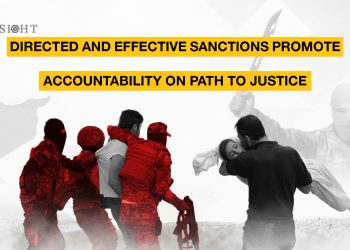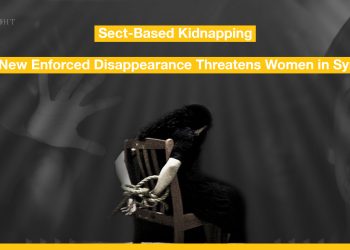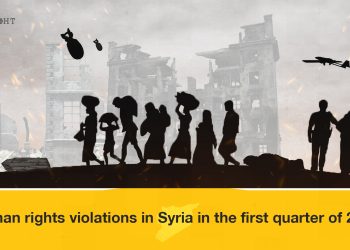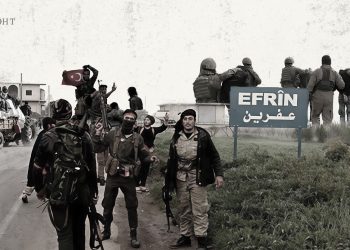After midnight of March 16-17, 2025, the Turkish army committed a crime against humanity in Kobani, north Syria, killing nine civilians from one family (mostly children). Two children survived shells fired directly by a Turkish drone.
The victims had fled shells fired by Turkish forces and its affiliated Syrian militants, making the victims’ identity as civilians and children clear to the attacking party that monitored and traced them, and to the perpetrators of the killing via the drone as the victims were exposed in the open.
INSIGHT scrutinized the crime by contacting with activists in Kobani and the victims’ relatives. it obtained several testimonies from residents in the southern countryside of the city, where the family of the spouses ‘Osman Burkul Abdu’ and ‘Ghazala Osman Abdu’, who were working hard to secure their children’s lives by working on a farm.
INSIGHT prepared this report in the belief that documenting violations prevents or limits them, and affects governments’ policies by highlighting the voices of victims, survivors and those who are threatened.
Bashar al-Assad’s regime has not succeeded in justifying its crimes, abuses and despotism, no other party can justify violations and crimes to stifle peaceful political wills and carry out supposed victories at the expense of victims.
Turkey kills a whole family
During the hours after Iftar of Ramadan March 16th, shells landed on a farm belonging to Mr. Shiraz Qasmlo, located between the villages of Qumji and Barkh Botan and approximately 27 km south of Kobani city.
Othman Burkul Abdu’s family, also known as Abu Iskandar, works on the farm. the family consists of the parents and nine children (six daughters and three sons), who fled the shell on the farm towards low terrain (a valley or old river stream).
We have not ascertained if there were injuries in the artillery shelling, which activists said it was launched from a Turkish military base in the village of Al-Houshariya, northeast Manbij, or not. However, the shelling was violent and caused material damage and death of chickens and dogs, according to the farm owner who visited it the following morning.
it appears that, while searching for a safe spot in the open, the father has chosen a low-lying place, considering it closer to earth and safer during artillery shelling.
But a Turkish drone, likely tracking the victims, shelled at 12:40 a.m. (after midnight) the children and their parents, killing the siblings: Fawaz (2), Yasser (6), Dilovan (13), their sisters: Infant Avesta (8 months), Saliha (4), Djilah (14), Aheen(15 ), and the parents Othman Burkul Abdo (42) and Ghazala Othman Abdo (39).
Sisters, Narine (9) and Ronida (18), were injured by the shelling too, according to people close to the family. they also said that Ronida was severely injured and that she would need long-term care in case she survived.
Unfortunately, Ronida did not survive and died the next day of her injuries.
Witnesses quoted and the images indicated that the bodies had been torn apart and amputated, demonstrating once again the seriousness and severity of the crimes committed by Turkish army during its operations against civilians in north and east Syria under the pretext of fighting terrorism and preserving its national security.
The victims were all from a Kurdish family descended from the village of Karak, countryside of Kobani. the father, who was killed, had been injured by shrapnel during the war in Syria, and his eldest (injured) daughter worked for the Internal Security Forces in ‘Sirin’ district and was on her day off along with her family.
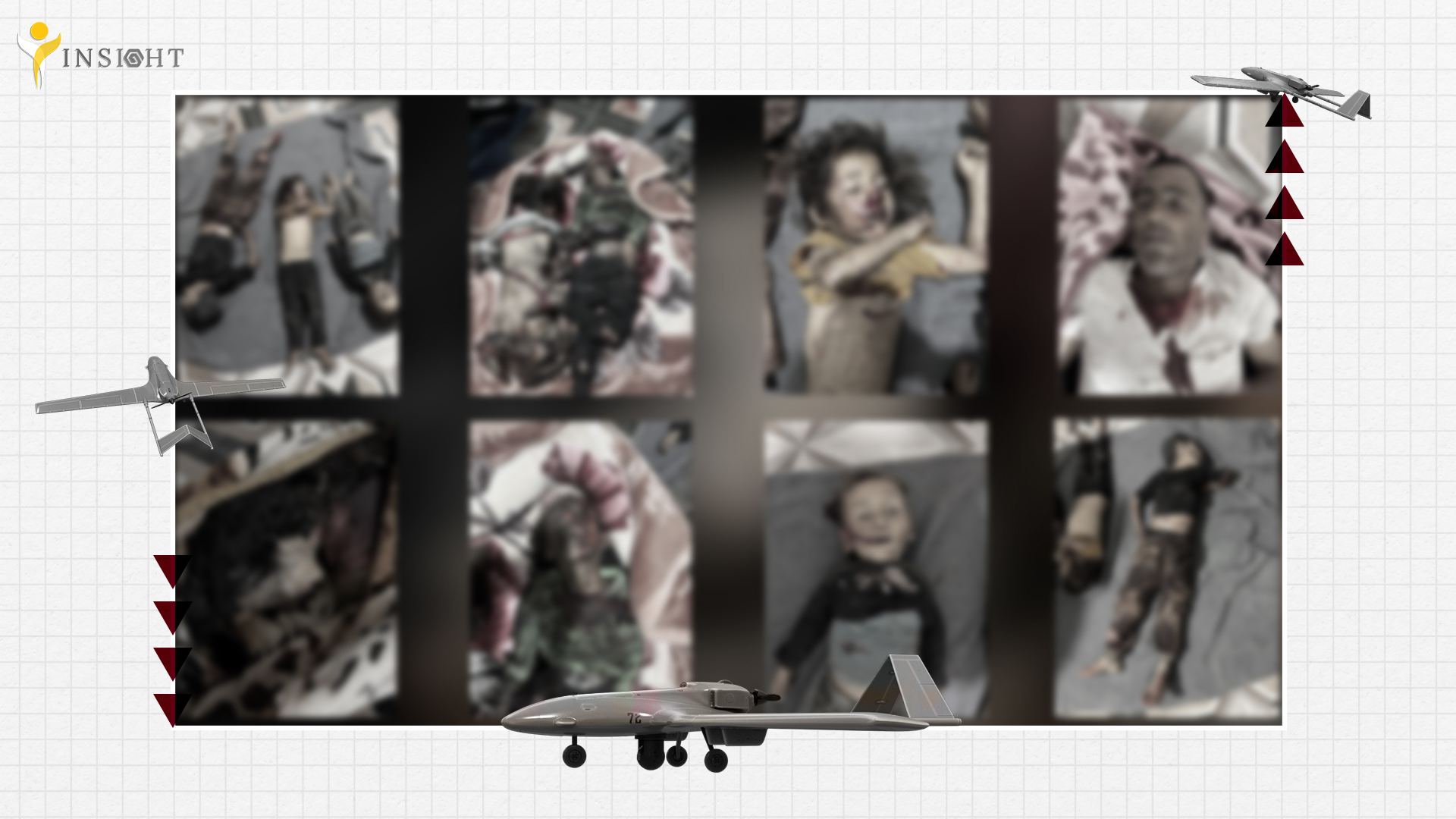
Turkey killed children
“In 2025 Turkey killed children aged 3 months and four years on charges of being terrorists,” said one of the farm’s owners Hamoda Qasimlo, interviewed by local Radio Arta in Kobani. “Abu (father of) Iskander was my brother, he was very poor and worked to feed his family “. He added: “the tragedy is when you are not safe neither in your home or in your land.”
Kobani and the SDF-controlled areas are suffering from a decline in business with scarce rain this winter and lack of electricity and fuel. in addition to the displaced persons from Shahba and Manbij who came following the control of those areas by pro-Turkish National Army militants (the SNA) late in 2024.
Before the mass killing of Othman Burkul’s family in south of Kobani by Turkish forces, the Kurds were preparing to kindle the torch of Newroz the next day, that represent the optimism for the future. this tragedy prompted the region’s ruling Autonomous Administration to issue a circular declaring mourning and suspending the celebrations.
people of Kobani have stayed in their villages during 14 years of war in Syria, including the period of displacement and return during ISIS attacks on Kobani in 2014 and 2015; though, there is partial displacement in the southern countryside of Kobani currently due to the escalating Turkish shelling in 2025. In several villages, the families rely on one person to remain to guard a few houses.
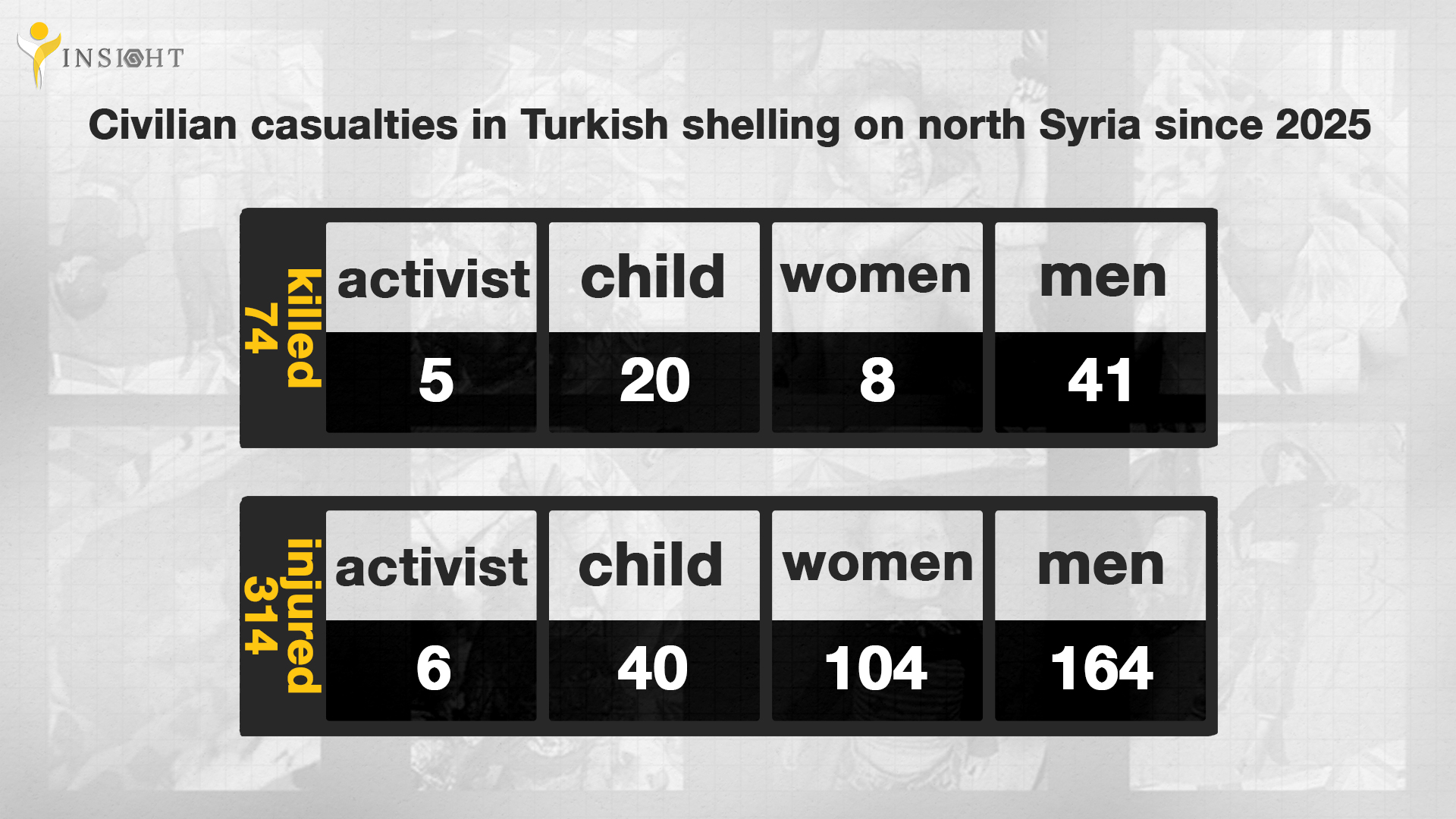
Peace requires ending the killing
Despite a peace path between Turkey and the Kurdistan Workers’ Party [PKK] in Turkey, and an agreement between the Transitional Administration in Syria and the Syrian Democratic Forces, Turkey has stepped up the use of excessive and lethal force in its attacks against civilians within Syrian territory.
INSIGHT has documented mass killings of civilians by Turkish targeting of families in their homes since the beginning of 2025:
- In the eve of January 11, a family’s home in the village of Al-Masrib, Kobani’s countryside, was shelled and the entire family was killed or injured. Two children (12 and 13), and their father died, and five children aged between one and ten were injured.
- houses in Al-Jamas village of Ayn Issa’s countryside, were shelled with heavy artillery on January 27, resulted in the killing of three civilians, including two children.
- Turkish shelling on the popular market in Sirin district, south of Kobani, on January 28, killed12 civilians and injured 13.
- house on the western side of Kobani city was shelled, on January 29, resulted in the killing of two men and injury of a civilian woman.
- February 1, a house in Ashmeh village, countryside of Kobani, was shelled, resulting in injury of seven children, one man and two women.
- Another shelling on Ashmeh village, on February 8, injured nine civilians, six children, two men and one woman.
- On the same day, February 8, a house in the village of Zaidiya in Tal Tamer countryside, north of Hasakah, was shelled by artillery, resulting in the death of one woman and the injury of two civilian men.
- Other incidents of shelling buildings, a water tank and a school in populated villages in north and east Syria.
Throughout the course of time, in which these crimes were committed, some statements by Turkish Government officials, in particular the Turkish President and Foreign Minister, included violent and general threats and expressions, such as “We will bury Kurds with their weapons” or “We will not keep a head on a shoulder and a stone on a stone”. Such speeches also confirm the commission of such practices systematically, despite various statements about coexistence and respecting rights.
Legal designation:
Such attacks are prohibited as directed against the civilian population in accordance with article 51, Protocol I, and article 13, Protocol II.
as well as the rules 11/12/13 from the ICRC’s Study of International Humanitarian Law prohibiting indiscriminate or disproportionate attacks, and rules 18/19 on precautionary measures to be taken in response to the effects of attacks.
Turkey’s targeting of mostly child civilians is a crime against humanity, which appears to be evident in several elements:
- this is inhumane act in its characteristics and caused severe pain and serious physical injuries.
- Turkish forces committed crimes targeting members of entire families in Kobani, north and east Syria within systematically.
- The shelling was against civilians in a farm, Kobani countryside, and caused the death of 10 members, including a toddler. It also injured 2 others member severely, who caused the death of one of them the next day.
Turkey’s frequent attacks on north-east Syria in particular amount to a war crime and also require individual criminal responsibility.
The current Syrian government must assume its responsibilities towards Turkey’s repeated attacks on Syrian territory, that cause loss of life and property, and use its political relations with the Turkish government condemn and stop the killing of Syrians.


